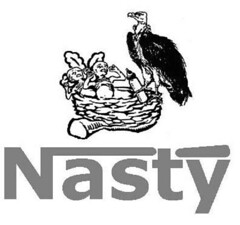Nestlé’s Unethical Practices
by sheensagalongos
As you may already know, Nestlé has been in deep trouble for its questionable marketing strategies regarding its formula for infants. The company promoted its product extensively in third-world countries which led to a number of infants getting serious health problems -or even ended up dying, for that matter. This is due to the lack of education in the developing countries: parents often do not have the knowledge of sanitation and water contamination; on the other hand, if they do have the knowledge, they may lack the resources (such as electricity or fuel) to boil their water. Additionally, due to their limited income, they might also dilute the formula to make it last longer -leaving their infants under-nutritioned.

A tampered image of Nestlé’s logo due to boycotts.
In their defense, it is not really their fault if most of their consumers in third-world countries have a below average level of education; however, it pains me to think that a big successful company would viciously take advantage of that fact. Their corporation’s social irresponsibility has not only lost them a huge amount of consumers, but also cost them potential new consumers due to the widespread negative light in the media and boycott from the public and NGOs that has been ongoing for a while now. (See this article from Business Insider about a recap on the whole scandal.)
What I do not understand is why they did not avoid unethical marketing like this in the first place or accounted for the variables between different cultures. It simply does not pay, there are no benefits in doing so. Instead, an international and big corporation like Nestlé should have paid more attention to its consumers’ health and building better relationships with them. Surely, they would have benefited from that in the long run.